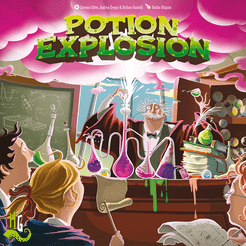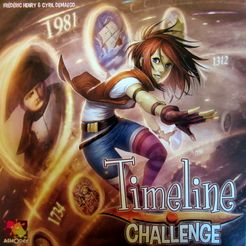
BACKGROUND: Potion Explosion is a marble based game for 2-4 players. It was created by Stefano Castelli, Andrea Crespi, Lorenzo Silva, and Giulia Ghigini in 2015, and published by Horrible Games. Players gather ingredients to create potions to score points.
GAMEPLAY: Each turn, a player may take an ingredient from the Dispenser from rows 1-8. If 2 or more marbles with matching colors ever during this time, the player gathers all marbles that match, and continue as long as 2 or more marbles collide. This is called an Explosion. Then, the player places all the marbles in their hand onto 1 or both of their potions, or onto their Ingredient Pool to save for later. If neither works, all remaining are put back into the dispenser. Whenever a potion is finished, it is placed off to the side, and replaced at the end of the players turn.
/pic2644583.png)
MARBLES: Players may also take another marble once during their turn by taking a Little Help Token, which costs the player 2 Victory Points. Players can also drink any of their potions for a one time effect. In either case, if 2 or more marbles Explode from either of these events, players do not gather more marbles.
WINNING: If a player gets collects 3 of the same potions, or 5 different kinds of potions, the player gathers a Skill Token. Players cannot get a Skill Token if they already have got one for fulfilling that requirement. When the Skill Token pile runs out, all other players take 1 final turn. Then, every player counts the Victory Points from all Skill Tokens, collected potions, and all Little Help tokens.
CONCLUSION: Mechanically, this game is similar to something like Bejeweled or Candy Crush. The thing is, that's fascinating to see something like that in a board game, a mechanic that seems like it wouldn't be translatable to a real world setting, and yet here it is. The game is fun, too, if you like match-3 types of games. The biggest weakness I see with it is that it takes a little bit to get a handle on how the Explosions work. Once you do, it's fun to see all the ways you can take advantage of it, and can blow your mind.


/pic2896445.jpg)

/pic2795398.jpg)

